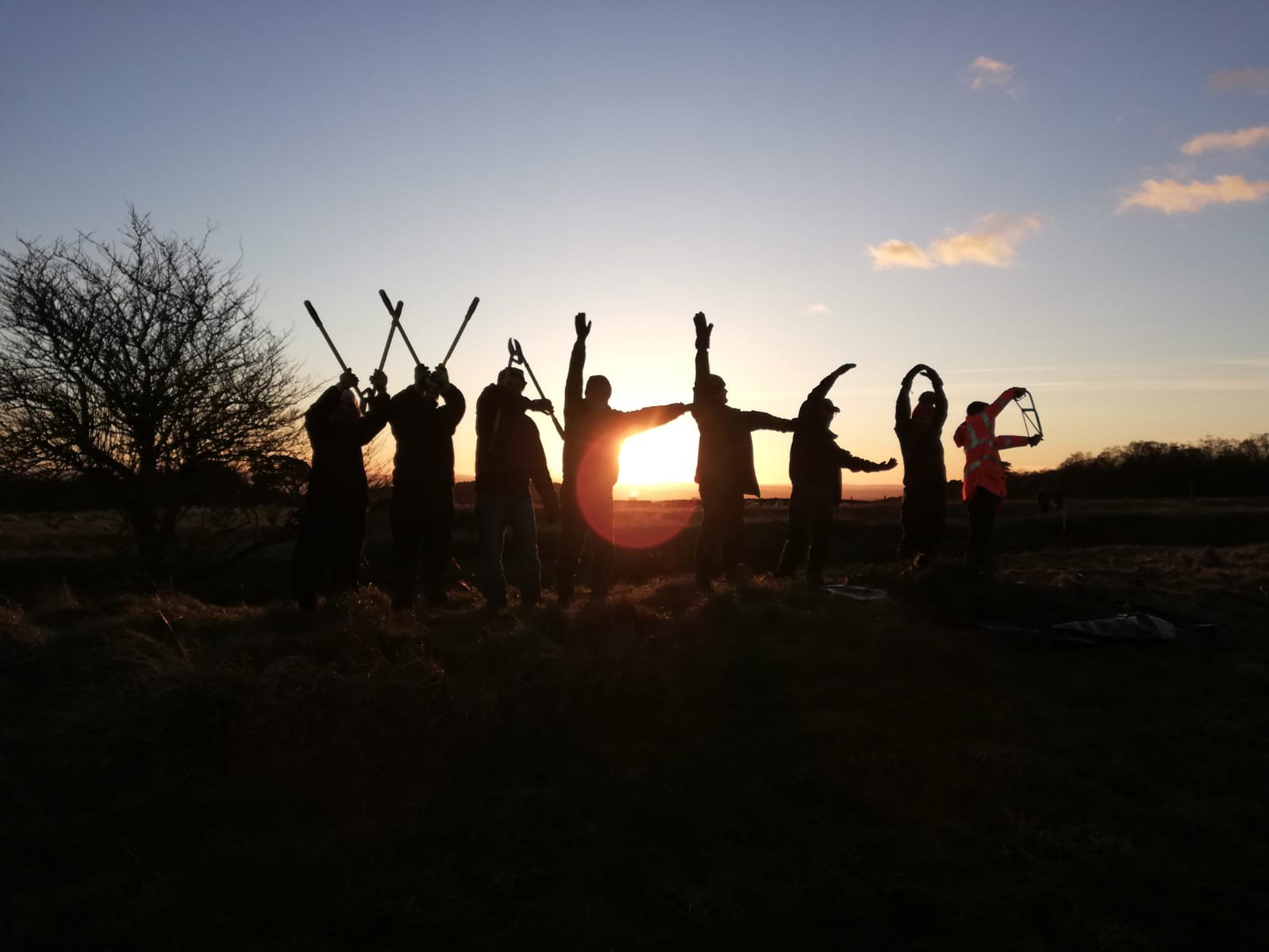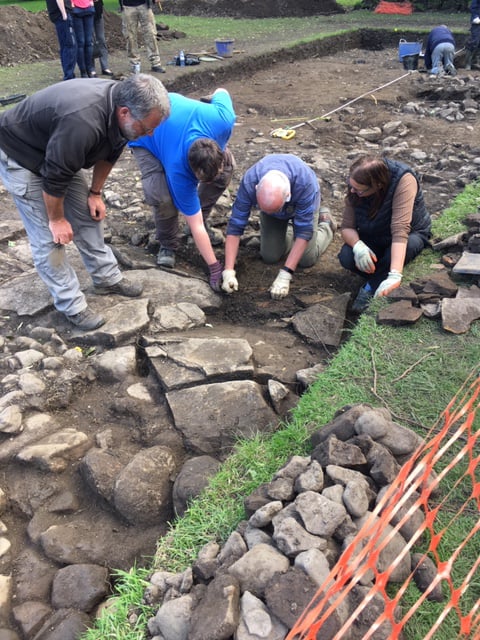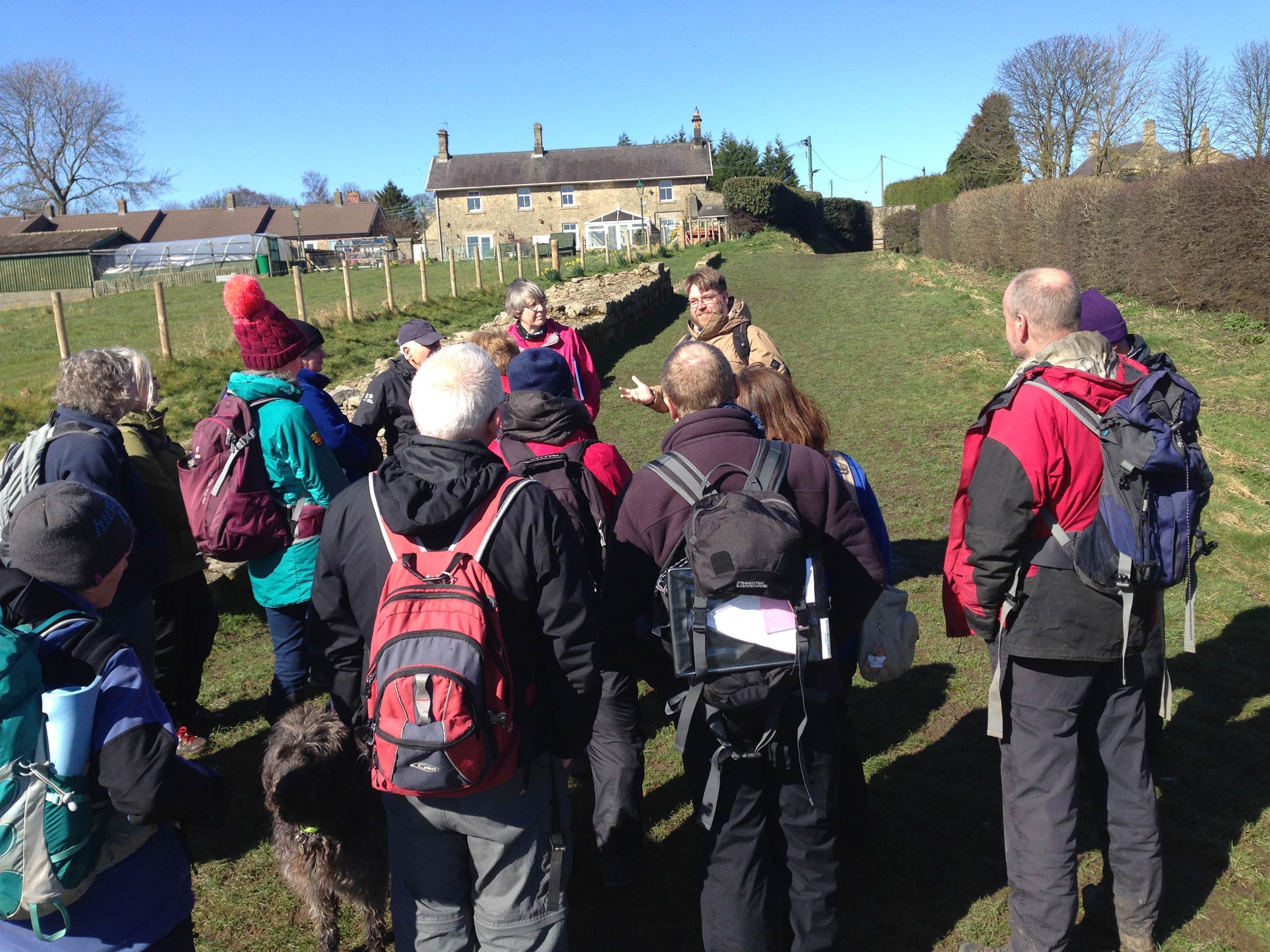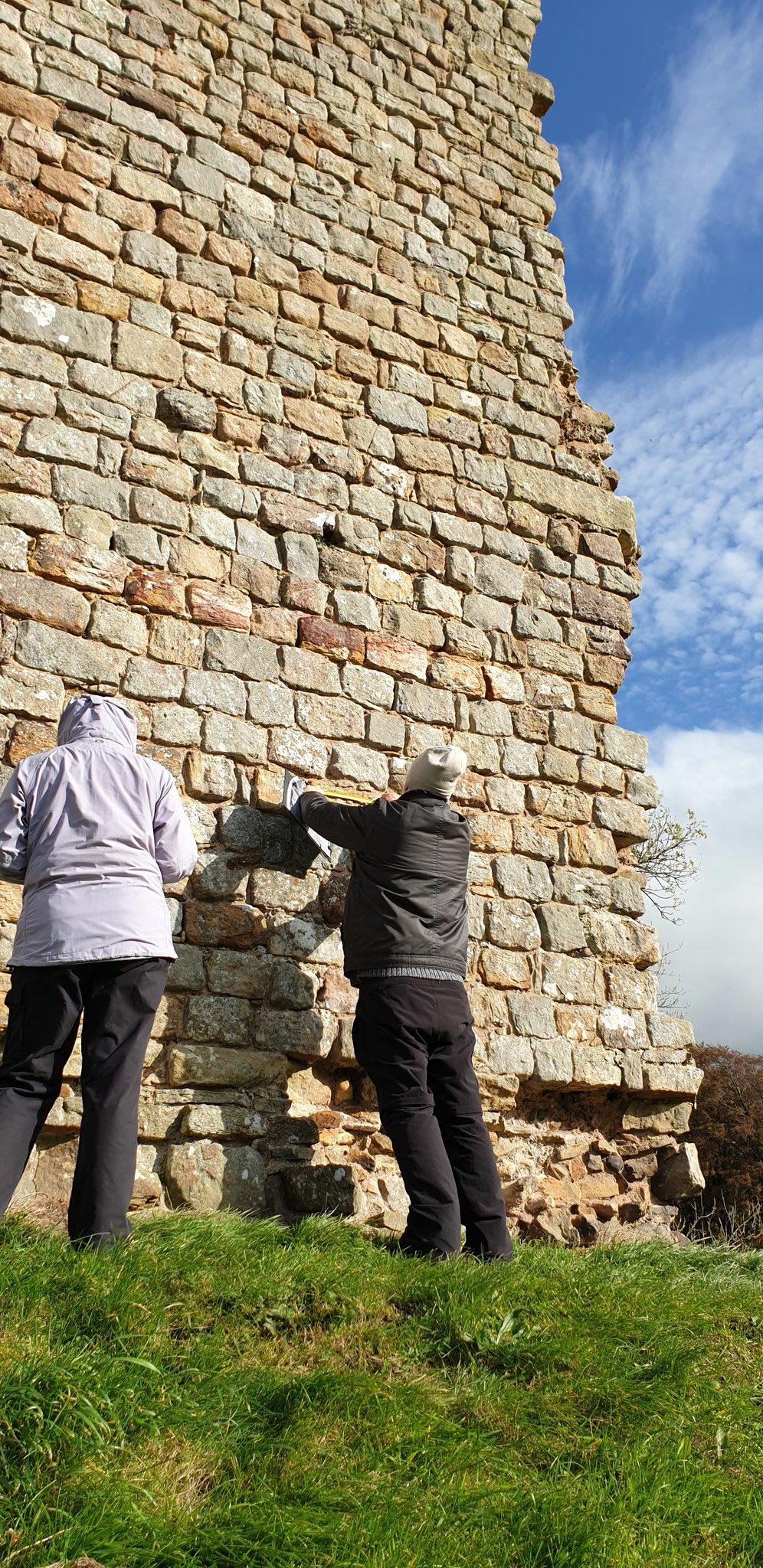Kerry Shaw – August 5, 2020 – 17 min read

Commanding a corridor across the north of England, Hadrian’s Wall (part of the transnational ‘Frontiers of the Roman Empire World Heritage Site’) was inscribed for its monumental scale as a military frontier of the Roman Empire in the 2nd century. But regardless of its military and engineering fame, for the present day communities who live and work along its length, the Wall is more than simply a stone-built feature.
Its character and relevance is constantly evolving, providing contemporary resonance and benefit to the host local population. So for a project such as the Hadrian’s Wall Community Archaeology Project (WallCAP), funded by the National Lottery Heritage Fund and hosted by Newcastle University, activity could be dynamic and responsive, particularly when faced with a global pandemic.
WallCAP, an ambitious Wall-wide, 3-year community archaeology project, aims to engage local communities in the vital task of preserving the heritage of the Hadrian’s Wall WHS for future generations. Interventions at sites on the Heritage at Risk register have seen volunteers excavating, surveying, mapping and monitoring the condition of the monument at key sites, while also mapping potential sources and the subsequent recycling and dispersal of Wall stone.
In March, when the UK government announced the national lockdown in the fight against COVID-19, an overnight halt was put on all fieldwork, surveying, group activities and training events, leaving the home-working project team with a key dilemma – how to maintain the enthusiasm and engagement of 250 project volunteers over an undetermined period of time! Strengthening volunteer and community connectivity with the WHS and the outdoors during this difficult time soon became an integral part of the project’s mission and the team were dedicated to succeed in this task.
Knowing volunteers would be homebound and missing their ‘fix’ of the Wall, alongside the regular newsletter communications, the WallCAP team were quick to respond and alternative engagement activities were introduced. WallCAP was already in the beneficial position of working digitally in some aspects of the project and this made the shift easier to engaging with volunteers in an exclusively digital fashion.
A 3-month social media campaign was commissioned to ‘Bring the Outdoors Indoors’. In response to a weekly theme linked to the Wall, volunteers were encouraged to upload a suitable photograph from their archives, in celebration. A special theme for National Volunteers’ Week (June 1-7), ‘Wallcraft’, invited volunteers to get crafty and create a piece related to the Wall, this included some impressive wall-shaped baked masterpieces!
A home-based GIS research project was then launched to invite volunteers to digitally research sites along the Wall, in this case (forts, milecastles and turrets) and submit their findings to be uploaded onto the first ever Hadrian’s Wall Geographical Information System (GIS). An army of 50 volunteers jumped into action, some desperate for a constructive distraction from the relentless and difficult daily news updates as the virus took hold and spread. With over 150 sites requiring research, volunteers hunted through archives, trawled many a journal article and book chapter, all to fuel their interest and contribute to the new online resource; a version of which will become available for everyone, for free, at the end of the project.
“I work full time so struggle to get along to digs and other archeological events and activities. As such the GIS project offered flexibility, in particular given home working due to Covid19, to undertake elements of research for the project”
WallCAP Volunteer
Evaluation of the GIS project demonstrated that the volunteers enjoyed being part of the creation of a resource which would help educate and inspire others. Most interestingly, 42% of the volunteers involved, were newly active to the project, having registered but sat ‘dormant’ in the Volunteer Portal until lockdown. Remote involvement lead to increased involvement, particularly from a new audience.
The home-based working and furlough conditions of the covid lockdown provided opportunities for volunteers who were normally unavailable to participate due to work-commitments. This exercise provided flexibility in terms of time commitment over an extended period, rather than a more ‘normal’ activity that would be in-person and event-based.
WallCAP’s volunteering offer is continuing to evolve through the summer of 2020. Volunteer training is moving online, volunteers will soon by trained in researching 3 case study areas for the Stone Sourcing and Dispersal strand of the project, a stone mapping digitisation exercise is to be launched imminently and the first Wall-related Book Club is now underway!
The ongoing offer of opportunities during the pandemic has enabled volunteers to explore their connection with their Wall while offering meaningful contributions to the way the WHS is managed and promoted for long-term mutual benefit.
At the individual and personal level, feelings of connection, meaningful participation and valued contribution are all essential tenets for promoting well-being. The interim evaluation of the WallCAP programme during the pandemic is strongly reflecting this.
“It is really wonderful, especially during these challenging times, to be able to feel that in a small way an individual can contribute to the better understanding of an historic site which is of worldwide interest”
WallCAP Volunteer
Hadrian’s Wall has an allure of its own. The enduring interest of the Wall, locally, nationally and internationally is a testament to its resonance with contemporary societies and absolute validation of its inscription as a World Heritage Site. People feel connected to it through familiarity and pride, it is a cultural identifier.
Not even a global pandemic can dampen the enthusiasm of local communities for this very special World Heritage Site in the north of England.
Kerry Shaw – Volunteer Co-ordinator and Community Liaison Officer,Hadrian’s Wall Community Archaeology Project (WallCAP),University of Newcastle
Website: wallcap.ncl.ac.uk
Social Media: Twitter: @WallCAP
Instagram: wall_cap
Facebook: ‘Hadrian’s Wall Community’
Share this via…







